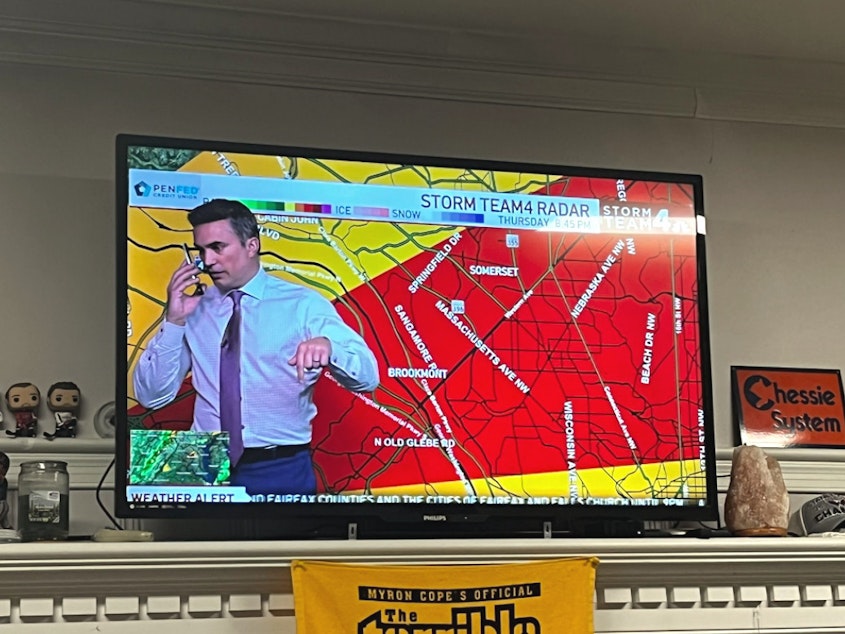Meteorologist pauses weather report on live TV to call family about a tornado warning

Chief meteorologist Doug Kammerer paused his weather report on NBC Washington Thursday evening to call his family and inform them about a tornado warning nearby.
Kammerer was on the air at about 8:45 p.m. doing a lengthy weather report when the National Weather Service issued the warnings.
Chief meteorologist Doug Kammerer paused his weather report on NBC Washington Thursday evening to call his family and inform them about a tornado warning nearby.
Kammerer was on the air at about 8:45 p.m. doing a lengthy weather report when the National Weather Service issued the warnings.
The path takes it "right over my house," Kammerer said on air with his cell phone in his hand while standing in front of a weather map showing the trajectory of the storm.
Kammerer then called his home and his son answered.
The meteorologist told his son that the family should go to the basement for safety.
Sponsored
"Gotta warn my kids," Kammerer said after hanging up the phone and resuming his weather report live on air.
A few minutes after Kammerer returned on air, the NWS canceled the tornado warning.
Fellow meteorologist James Morrow works for NWS headquarters in Silver Spring, which was also included in the tornado warning.
He was watching while Kammerer made his phone call Thursday on air.
"The decision to cut in is not easy for stations to do, and for meteorologists to ask permission to do," Morrow told NPR. "But as a consumer of their feed, and a scientists who understands the risks of strong tornadic storms like this, it was heartening to see this type of coverage for what could've turned into a very serious situation." [Copyright 2022 NPR]
A few minutes after Kammerer returned on air, the NWS canceled the tornado warning.
Fellow meteorologist James Morrow works for NWS headquarters in Silver Spring, which was also included in the tornado warning.
He was watching while Kammerer made his phone call Thursday on air.
"The decision to cut in is not easy for stations to do, and for meteorologists to ask permission to do," Morrow told NPR. "But as a consumer of their feed, and a scientists who understands the risks of strong tornadic storms like this, it was heartening to see this type of coverage for what could've turned into a very serious situation." [Copyright 2022 NPR]
